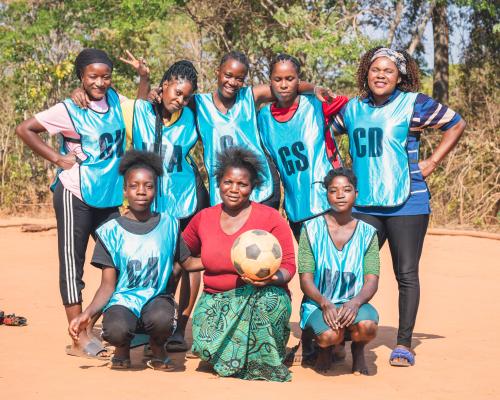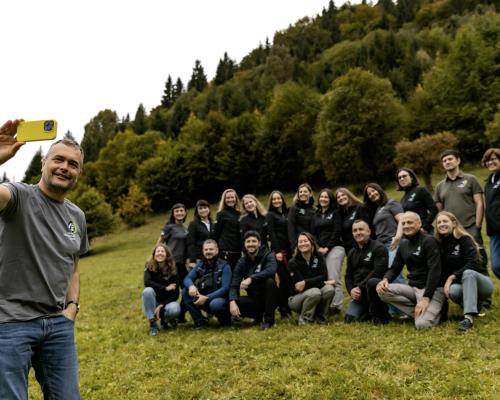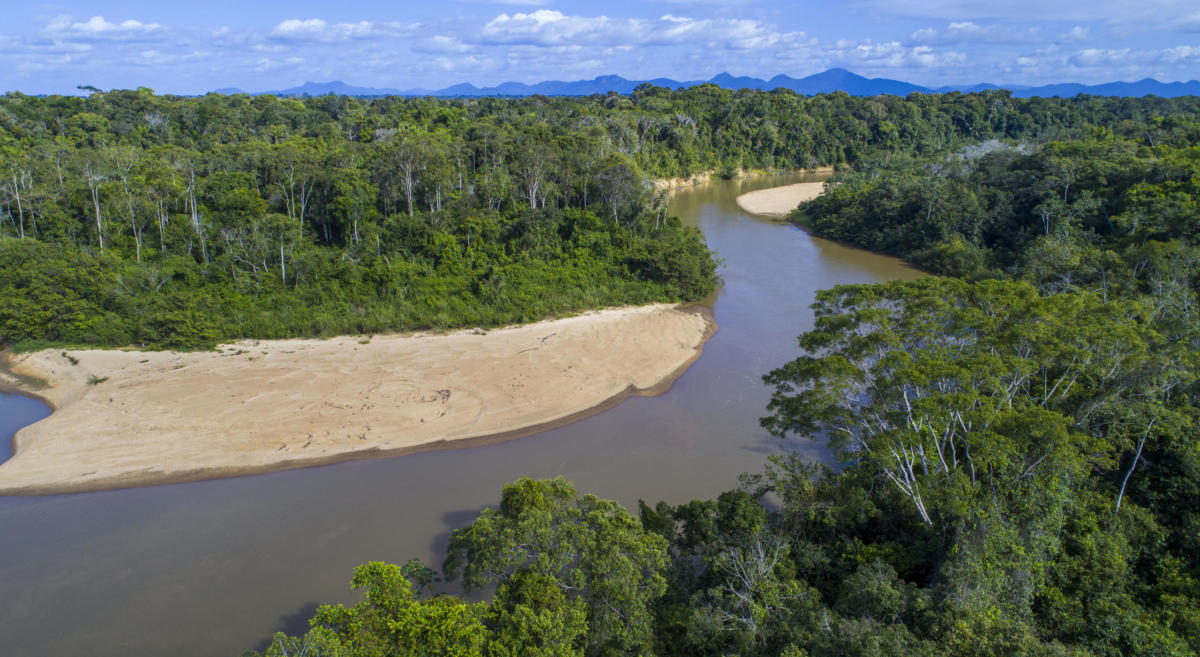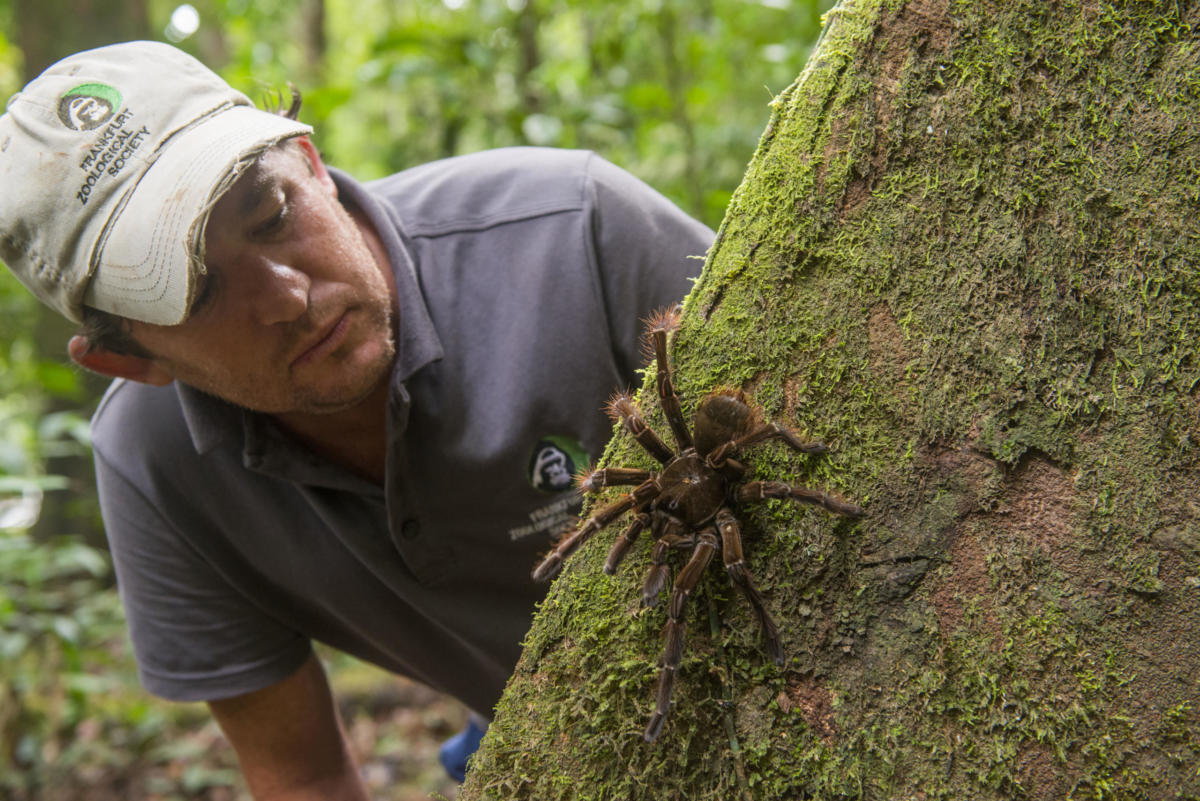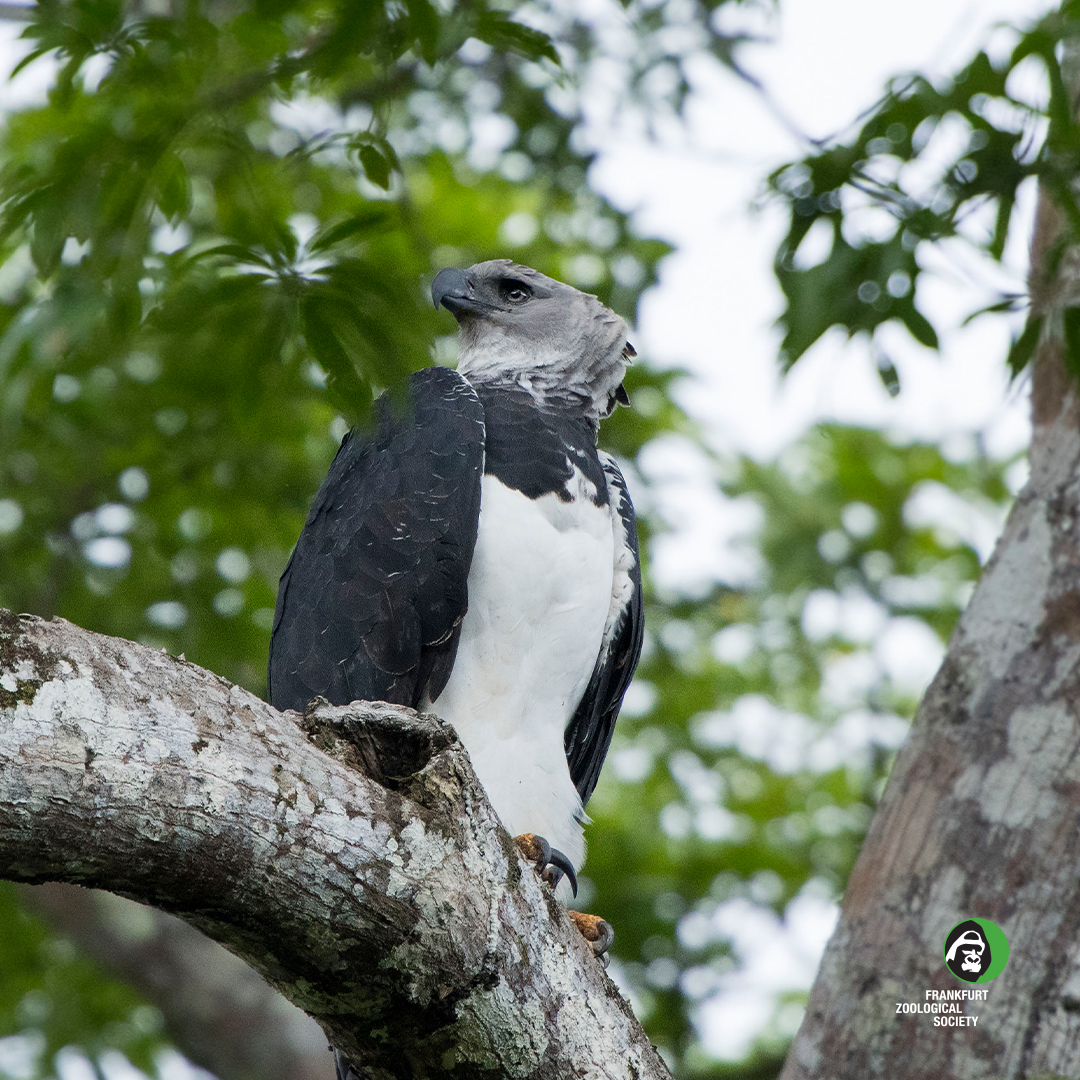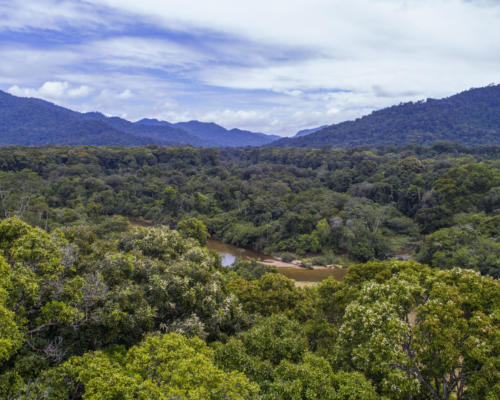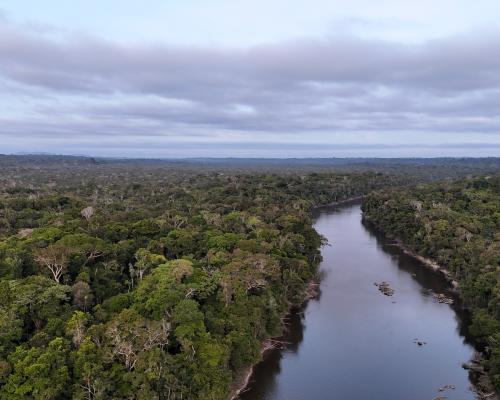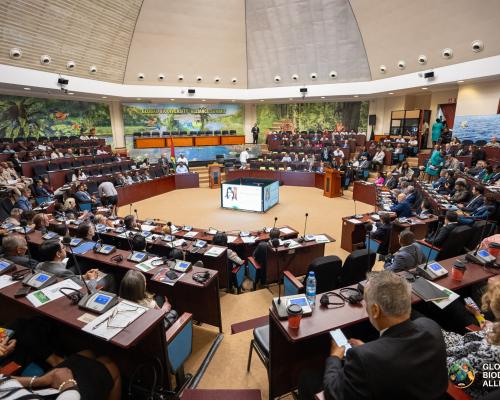A look at current FZS activities in Guyana and future plans for Kanuku Mountains Protected Area.
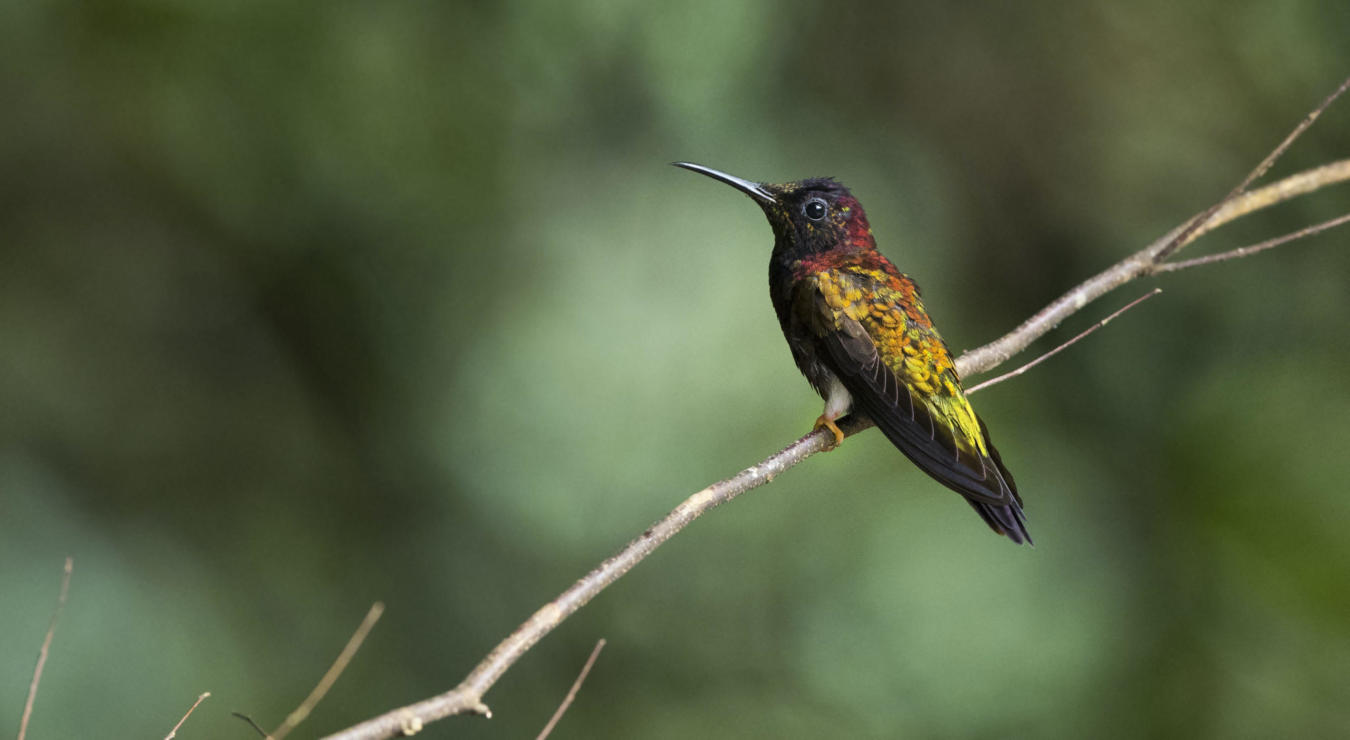
Protecting one of Guyana’s most diverse ecosystems
Located in the north-eastern tip of South America near the equator, Guyana is a country full of unexplored wilderness. Although it is roughly 60% the size of Germany, its entire population of 780,000 residents is about the same as one German city, Frankfurt am Main. This makes it one of the least populated countries on the continent, and with the majority of the country mostly unexploited for centuries, the rainforests have been left alone, in a near-pristine state.
To safeguard some of this wilderness, FZS has been supporting the Protected Areas Commission of Guyana (PAC) to care for the Kanuku Mountains Protected Area (KMPA). This protected area spans nearly 3% of Guyana within a part of the country considered to be the most ecologically diverse. KMPA encompasses a whole intact rainforest ecosystem including 1,000 meter high mountains. Here over 1,400 vertebrate species have been counted so far, including tapirs, jaguars, the world’s largest eagle, the harpy, and more.
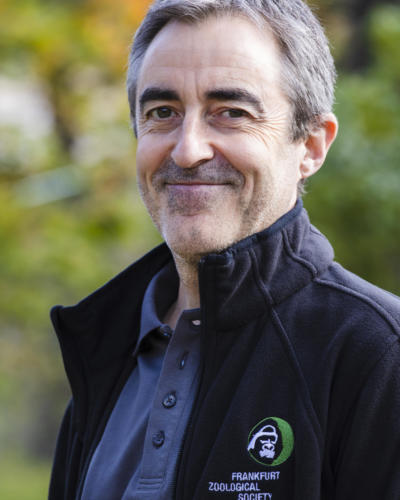
“This is one of the most pristine and untouched places in the world. Places that are in excellent condition like this one are increasingly becoming rarities.”
Ashley Vosper, FZS project leader who works in Kanuku Mountains Protected Area is impressed by his workplace stating that “This is one of the most pristine and untouched places in the world. Places that are in excellent condition like this one are increasingly becoming rarities.”
Despite this, and the fact that Guyana is a country committed to protecting its natural resources, threats, such as illegal mining, are increasing in size and number. If left unchecked the threats will become more established leading to potentially disastrous consequences for Guyana’s wild places as they are for other countries in South America. In Peru for example, FZS Gold and Mining and Conservation Coordinator, Astrid Aguilar, mentioned in an interview that “100,000 hectares of pristine Amazonian rainforest have been lost in one region of the country because of gold mining”.
FZS regularly is on the lookout for outstanding wild areas that need the resources and experience it can offer, especially in South America. The Kanuku Mountains Protected Area fits into the FZS project selection criteria nicely because not only has the anthropological impact been limited, it also contains a large irreplaceable ecosystem, and most importantly, there is a clear and immediate need to safeguard this site.
But when FZS first set foot in Kanuku Mountains in 2014, there was nothing there that a typical protected area would have, such as a team of rangers, outposts, an office, or vehicles. This did not deter the FZS though, it just meant that a lot needed to be done, and quickly, so that the area could be protected as soon as possible.
The first step FZS took was to support the newly established PAC in updating and finalizing a management plan for the area, this was needed to outline current land uses around KMPA and to decide upon future work. Once these plans were agreed upon, the real work could begin. This meant hiring and training rangers, setting up an office in a nearby town, planning and carrying out wildlife censuses, speaking with local communities about livelihood opportunities and more.
Then, with funding obtained from the German Development Bank KfW, PAC could begin the process of building critical infrastructure in the protected area, such as control outposts for rangers, and to obtain other important resources for the ranger team such as vehicles.
Despite the coronavirus pandemic and ongoing infrastructure development for rangers, FZS and PAC are planning to push ahead with systematic ranger patrols in 2021 to not only ensure Kanuku Mountains Protected Area stays safe from looming threats such as nearby illegal mining, but also to proceed with critical conservation research. This includes systematic camera trapping a large part of the protected area to understand the distribution and density of mammal species living there.
Obtaining results from this research is crucial, as, among other things, it assists FZS and PAC with updating management strategies, tracking changes to the ecosystem, and overall helps the team quickly detect any problems in the area immediately. “We need to get a real picture of the area… to better understand where the animals are and where possible threats are located because when you look at the park it appears pristine. We want to confirm this scientifically” outlines Ashley.
FZS has been using this approach of regularly collecting data to monitor wildlife and ecological fluctuations in its projects for years, in some cases for decades such as in the Serengeti where FZS has been present since the 1960s. This helps the teams working in the FZS project areas ensure that their conservation efforts are working.
But the ultimate success, for FZS, is making its project areas, such as Kanuku Mountains Protected Area, into legacies that benefit the nations where they are based, future generations, and the world’s biodiversity. Stay tuned to our website and social media channels where we will share any discoveries from this and other areas.






